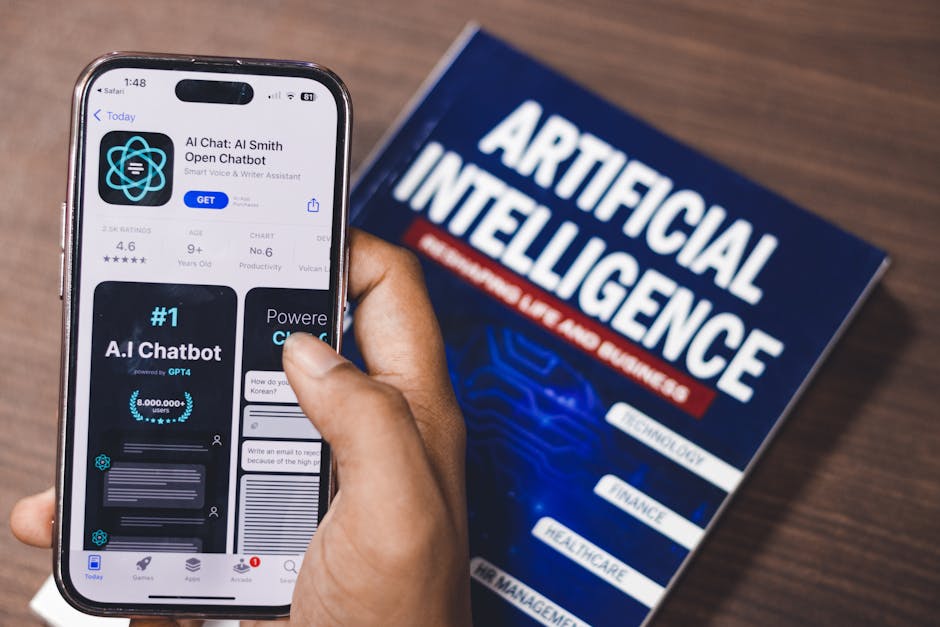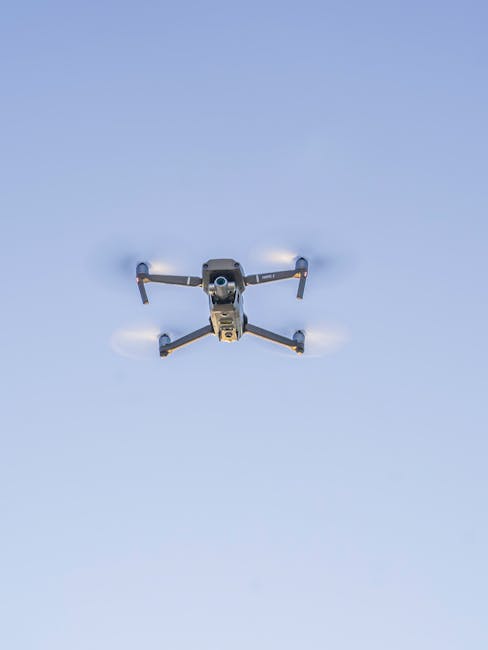Unlock encrypted content
Please enter your SSCE key to initiate on-the-fly decryption.
Decryption key: (Click cancel if you don't have the key)
Copied link to clipboard.
This feature is unavailable for free accounts. Upgrade now and enjoy all Premium benefits.
Go Premium!
This feature is unavailable for free accounts. Upgrade now and enjoy all Premium benefits.
Go Premium!
Please open this page in browser ( Google Chrome or Safari ) to use this feature.
Open In Browser
The Transformative Impact of 5G Technology, Cloud Computing, and Emerging Innovations on Our Lives.
Random related video for this blog.
Copied share link to clipboard.
In today's rapidly evolving technological landscape, several key innovations are reshaping the way we live, work, and interact. These include 5G technology, cloud computing services, voice assistants, and many more. Understanding how these technologies interconnect and enhance our daily experiences is essential for anyone looking to stay ahead in the digital age.
5G Technology Revolution
5G technology represents the latest evolution in mobile telecommunications, promising unprecedented speeds and connectivity. With its capabilities, 5G can support a vast number of devices simultaneously, making it a cornerstone for the Internet of Things (IoT). This means that everything from smart home devices to industrial machinery can communicate seamlessly, leading to enhanced efficiency and reduced latency in data transmission. Consider a smart city powered by 5G. In this environment, traffic lights can adjust in real-time based on traffic conditions, reducing congestion and improving safety. For instance, cities like Barcelona have begun integrating 5G technology to enhance urban mobility and environmental monitoring, showcasing a practical application of this revolutionary technology. Moreover, healthcare systems are increasingly adopting 5G to facilitate remote surgeries and telemedicine, where surgeons can operate on patients from miles away with minimal delay. As 5G technology continues to roll out globally, its impact will extend beyond urban centers to rural areas, bridging the digital divide. Enhanced connectivity will enable farmers to monitor crops using IoT sensors, leading to better yield management and sustainable agricultural practices. The potential of 5G is vast, and as it integrates with other technologies such as edge computing and machine learning algorithms, it will further enhance our capabilities in data processing and analysis.Cloud Computing Services
Cloud computing services have redefined how businesses manage and store data. By providing scalable storage solutions, companies can access vast amounts of data without the need for physical infrastructure. This shift has enabledorganizations to adopt a more agile approach to operations, allowing them to focus on innovation rather than maintenance. For example, a startup can leverage cloud services to scale its operations rapidly without significant upfront investments. FileLu offers a compelling solution for businesses needing reliable cloud storage, with plans ranging from 51 GB to 500 TB at competitive prices. The platform also supports large file transfers, enabling users to send files up to 10 GB for free, which is particularly advantageous for businesses dealing with high-volume data. Furthermore, cloud computing services facilitate seamless file integration with third-party applications, enhancing productivity. Businesses can automate workflows by integrating tools like project management software, customer relationship management systems, and accounting platforms. This integration allows for better data sharing and collaboration across teams, ultimately driving efficiency and innovation. As organizations increasingly adopt cloud solutions, they must also prioritize data security. FileLu, for example, employs SSL protection for data transfers and offers Secure-Solo-Cipher Encryption (SSCE) to further safeguard sensitive information. This focus on security ensures that businesses can operate confidently in the cloud without compromising their data integrity.
Voice Assistants and User Experience
Voice assistants have transformed how we interact with technology, providing a more intuitive user experience. These AI-driven tools, like Siri, Alexa, and Google Assistant, enable users to perform tasks through voice commands, making technology more accessible to a broader audience. The integration of voice assistants with smart home devices exemplifies this trend. Users can control lighting, temperature, and security systems simply by speaking. This hands-free operation enhances convenience, especially for individuals with disabilities or those multitasking. More importantly, as voice recognition technology improves, these assistants can understand context better, allowing for more nuanced interactions. In the healthcare sector, voice assistants are emerging as valuable tools for patient monitoring and support. For instance, a voice assistant can remind patients to take their medications or schedule appointments, enhancing adherence to treatment plans. This application not only improves patient outcomes but also reduces the burden on healthcare providers. As voice technology continues to advance, it is likely to integrate with other innovations, such as machine learning algorithms, to offer personalized experiences. For example, a voice assistant could learn a user's preferences over time, making tailored recommendations for entertainment or lifestyle choices. This level of personalization will enhance user engagement and satisfaction, making voice assistants an integral part of daily life.Seamless File Integration and Edge Computing
Seamless file integration with third-party applications is a game-changer for businesses looking to streamline operations. By allowing different software systems to communicate effectively, companies can automate processes and enhance productivity. This integration is particularly crucial in environments where teams rely on various tools to collaborate and share information. Edge computing plays a vital role in this integration by processing data closer to the source rather than relying solely on centralized cloud servers. This approach reduces latency and bandwidth use, making it ideal for applications that require real-time data processing, such as video surveillance and IoT devices. For example, a manufacturing plant can utilize edge computing to monitor equipment performance, allowing for immediate adjustments that prevent costly downtime. Moreover, the combination of edge computing and cloud services creates a hybrid model that maximizes efficiency. Businesses can store less critical data in the cloud while keeping sensitive or time-sensitive information closer to the source. FileLu's cloud storage solutions support this hybrid approach, offering businesses the flexibility to choose where their data is stored. As companies increasingly adopt edge computing, they must also consider how to manage and protect their data effectively. Implementing robust security measures, such as encryption and regular backups, is essential to safeguard against potential threats. FileLu’s commitment to data integrity and privacy ensures that users can trust their information is secure, whether stored in the cloud or processed at the edge.Blockchain Technology and Data Security
Blockchain technology has emerged as a revolutionary force in data security, providing a decentralized and transparent method for recording transactions. Its application extends beyond cryptocurrencies, influencing various sectors, including finance, supply chain management, and healthcare. In finance, blockchain can enhance security and reduce fraud by creating tamper-proof transaction records. For example, banks are exploring blockchain for cross-border payments, which can be processed faster and at a lower cost than traditional methods. This technology also enables real-time tracking of funds, providing greater transparency and trust between parties. In supply chain management, blockchain can improve traceability and accountability. Companies can track the origins of products, ensuring compliance with regulations and ethical sourcing. For instance, in the food industry, blockchain can trace the journey of food from farm to table, allowing consumers to verify the authenticity and safety of their purchases. Moreover, blockchain's potential in healthcare cannot be overstated. By securely storing patient records on a blockchain, healthcare providers can ensure data integrity while allowing patients to control access to their information. This approach enhances privacy and empowers patients to manage their health records, fostering a more patient-centric healthcare model. As businesses consider implementing blockchain technology, they must also address the challenges associated with its adoption. These include scalability, regulatory compliance, and integration with existing systems. However, the benefits of increased security, transparency, and efficiency make blockchain a compelling choice for organizations looking to innovate.Machine Learning Algorithms and Predictive Analytics
Machine learning algorithms are at the forefront of data analysis, enabling organizations to derive insights from vast amounts of information. By automating data processing, machine learning can identify patterns and trends that human analysts might overlook, leading to more informed decision-making. For example, in marketing, machine learning algorithms can analyze consumer behavior to predict future purchasing patterns. Companies can use this information to tailor their marketing strategies, enhancing customer engagement and driving sales. Retailers like Walmart leverage machine learning to optimize inventory management, ensuring that products are available when and where customers need them. In healthcare, machine learning is transforming diagnostics and treatment planning. Algorithms can analyze medical images and patient data to identify conditions early, improving outcomes. For instance, some hospitals are using machine learning to predict patient readmissions, allowing for timely interventions that reduce costs and enhance care. As machine learning continues to evolve, its integration with other technologies, such as IoT and cloud computing, will create even more powerful applications. This synergy will enable organizations to harness real-time data for predictive analytics, driving innovation across various sectors.Nanomedicine and Healthcare Innovation
Nanomedicine, the application of nanotechnology in medicine, is revolutionizing the healthcare landscape. By manipulating materials at the nanoscale, researchers are developing innovative treatments and diagnostic tools that can target diseases more effectively. For instance, nanoparticles can be engineered to deliver drugs directly to cancer cells, minimizing side effects and improving treatment efficacy. This targeted approach represents a significant advancement over traditional chemotherapy, which often affects healthy cells. Companies like Bionano Genomics are exploring the use of nanomedicine for genetic diagnostics, paving the way for personalized medicine. Moreover, nanotechnology is enhancing medical imaging techniques, allowing for earlier detection of diseases. By using nanoparticles as contrast agents, healthcare providers can obtain clearer images, improving diagnostic accuracy. This capability is particularly valuable in detecting conditions like Alzheimer’s disease, where early intervention can significantly impact patient outcomes. As research in nanomedicine progresses, ethical considerations surrounding its use must also be addressed. Ensuring patient safety and regulatory compliance will be crucial as these technologies become more widespread. However, the potential benefits of nanomedicine in improving health outcomes make it a promising area for future innovation.Futuristic File Management Solutions
As the volume of digital data continues to grow, the need for futuristic file management solutions becomes increasingly pressing. Organizations must adopt strategies that not only ensure efficient storage and retrieval but also prioritize security and collaboration. Modern file management systems are embracing cloud computing to provide scalable and flexible solutions. FileLu, for example, offers a range of plans that cater to different storage needs, allowing businesses to choose the right solution for their requirements. With features like large file transfers and seamless integration with third-party applications, FileLu exemplifies the future of file management. Additionally, the rise of remote work has highlighted the importance of collaboration tools that facilitate efficient file sharing. Organizations must implement systems that enable teams to collaborate in real-time, regardless of their physical location. This shift towards remote collaboration has prompted the development of innovative file management solutions that prioritize user experience and accessibility. As businesses navigate the complexities of data management, they must also consider the implications of data privacy and security. Implementing robust security measures, such as encryption and regular backups, will be essential to protect sensitive information. By prioritizing these aspects, organizations can build trust with their clients and ensure the integrity of their data.Conclusion
The confluence of 5G technology, cloud computing services, voice assistants, and emerging innovations such as blockchain, machine learning, and nanomedicine is reshaping our world. These technologies are not only enhancing efficiency and productivity but also driving innovation across various sectors. As we move forward, organizations must embrace these advancements to remain competitive. By leveraging the power of these technologies, businesses can streamline operations, improve customer experiences, and foster innovation. The future is bright for those willing to adapt and harness the potential of these transformative technologies.Frequently Asked Questions (FAQs)
Question: What are the benefits of 5G technology? Answer:
5G technology offers faster speeds, lower latency, and the ability to connect many devices simultaneously, enhancing IoT applications and smart city initiatives.
Question: How does cloud computing enhance business operations? Answer:
Cloud computing allows businesses to scale their storage needs, integrate with third-party applications, and reduce infrastructure costs, leading to improved efficiency.
Question: What role does machine learning play in healthcare? Answer:
Machine learning algorithms analyze patient data for predictive analytics, improving diagnostics and treatment planning, and enhancing patient outcomes.
By Amelia Isabella
Email: [email protected]
Related
Real-time System Monitoring: Emerging Technologies for Hybrid Cloud Storage, Data...
July 12, 2023
Read More
Brain-Computer Interface and FileLu.com: Revolutionizing Storage Capacity and Integration
July 12, 2023
Read More
Cryonics Compliance-Ready Storage Solutions: Safeguarding the Future of Data
July 12, 2023
Read More
Introducing FileLu.com: Reliable Data Storage and File Management for the...
July 13, 2023
Read More
Digital Transformation: Empowering the Future of File Accessibility and Storage
July 13, 2023
Read More
Blockchain Data Storage: Revolutionizing Multi-Device Access and Secure File Sharing
July 13, 2023
Read More
Genetic Modification and Lidar Technology: Advancements in File Management and...
July 13, 2023
Read More
Cutting-edge Innovations in Autonomous Driving and Scalable Cloud Storage Architecture
July 13, 2023
Read More
<h1>Unlocking the Future: The Power of Quantum Computing, Autonomous Vehicles,...
July 13, 2023
Read More
Popular
Latest
The Future of Digital Transformation: Exploring Smart Homes, Efficient File...
November 30, 2025
Read More
Exploring the Benefits of Cloud Storage and Innovative Technologies in...
November 26, 2025
Read More
The Future of Technology: Exploring Biohacking, Space Tourism, and Digital...
November 23, 2025
Read More
The Future of File Sharing: Streamlined Workflows for Photographers and...
November 19, 2025
Read More
Exploring the Intersection of Technology: From Cybersecurity to Augmented Reality...
November 16, 2025
Read More
The Future of File Management: Embracing Edge Computing and Efficient...
November 12, 2025
Read More
The Future of File Sharing: Exploring User-Friendly Solutions and Data...
November 5, 2025
Read More
The Future of Cloud Storage: How FileLu Empowers Creative Professionals...
November 2, 2025
Read More
The Future of Autonomous Technologies: Innovations in Robotics, File Sharing,...
October 29, 2025
Read More
Emerging Technologies Revolutionizing File Management: From Li-Fi to Robust Collaboration...
October 26, 2025
Read More
Emerging Technologies: Exploring the Impact of File Access Auditing, Genetic...
October 19, 2025
Read More
The Future of Data Storage: Exploring Advanced Encryption, Mobile Integration,...
October 5, 2025
Read More
Exploring the Future of Data Management: Security, Efficiency, and Cognitive...
September 28, 2025
Read More
Revolutionizing Data Management: Innovations in Storage, Security, and Sustainable Technology.
September 24, 2025
Read More













